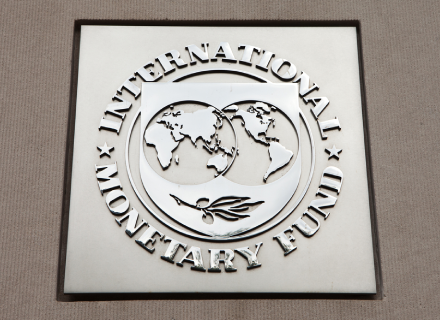Economic growth in the Middle East and North Africa (MENA) region is expected to rebound to 4% in 2025, but will hinge on a phase out of oil production cuts and headwinds subsiding, including from conflicts, stated the International Monetary Fund (IMF).
Growth in the region will remain “sluggish” at 2.1% in 2024, according to the IMF’s latest Regional Economic Outlook, launched in Dubai, lower than earlier projections as geopolitical and macroeconomic factors weigh.
The IMF cautioned that risks to the outlook for the whole region, including the Caucasus and Central Asia, “remain tilted to the downside,” and called for an acceleration of structural reforms, including in governance and labour markets, to lift prospects for medium term growth.
For 2024, the IMF has revised MENA’s growth estimate downwards by 0.6% from April’s report, mainly due to the extension of the Gaza conflict and further extensions of OPEC+ voluntary oil production cuts.
Jihad Azour, the IMF’s director for the Middle East and Central Asia department, told Reuters that the “good news” was that inflation was gradually being brought under control across the region, and expected to average the 3% target rate in 2024, except Egypt, Iran and Sudan.
“However, the outlook varies considerably across the MENA region, with oil exporting countries expected to cope better with potential risks, supported by strong non-oil sector growth,” Azour added.
Amid lower oil prices and production in 2024, non-oil growth in the Gulf Cooperation Council (GCC) region, has mostly outperformed overall growth as government-led investment programmes help drive domestic demand. However, MENA-based oil importers remain more vulnerable to ongoing conflicts and high financing needs.
“Even as these issues gradually abate, uncertainty remains high and structural gaps will likely hold back productivity growth in many economies over the forecast horizon,” the IMF report noted.
The IMF has approved USD 13.4 billion in new funding to Middle East and Central Asian countries since January 2024, including for programmes in Egypt, Jordan and Pakistan. However, the apex global monetary body once again warned of a “dire situation” in war-hit Palestine and Lebanon.
“Lebanon and Palestine are in a dire situation. In the case of Lebanon, more than one-quarter of the Lebanese population is displaced,” Azour told The National during a separate interview.
The Gaza conflict has devastated Palestine’s economy, with infrastructure, housing and schools destroyed. More than 43,100 people have died, with thousands more injured, since the war began between Hamas and Israel on October 7, 2023.
“The conflict had a major impact on Palestine, on Lebanon, relative impact on other neighbouring countries, Jordan, Egypt, and indirect impact on the rest of the region through trade and through oil and gas,” Azour observed.
In the first half of 2024, Gaza’s GDP fell by about 86%, while the occupied West Bank’s first-half GDP declined by 25%, the IMF said. The conflict, also involving Hezbollah, damaged Lebanon’s economy as well, with analysts projecting the country’s economy to contract by up to 25% by the year-end.
Vital sectors of Lebanon’s economy from agriculture to tourism are destroyed and critical infrastructure has been damaged as the conflict rages on.
Lebanon was already grappling with what the World Bank has called one of the worst global financial crises since the middle of the 19th century. The government defaulted on about USD 31 billion of Eurobonds in March 2020, with its currency sinking more than 90% against the dollar on the black market.
The country has yet to enforce critical structural and financial reforms required to unlock USD 3 billion of assistance from the IMF, as well as billions in aid from other international donors.
In Egypt, more than 70% of the revenue of the Suez Canal was cancelled amounting to USD 5-6 billion because of the trade uncertainty, arising due to the Gaza crisis and the resultant Houthi activities on the Red Sea.
“However, the Arab world’s most populous country is moving forward with its reform programme, which is gradually helping reduce inflation, and we hope that next year, it will bring more growth,” Azour said.
The IMF approved an initial loan of USD 3 billion to Egypt in 2022, before increasing it to USD 8 billion in March 2024. Cairo was required to enact certain reforms, including introducing a free-floating currency exchange regime, reducing food subsidies, tightening monetary policy and enhancing private sector competition.

